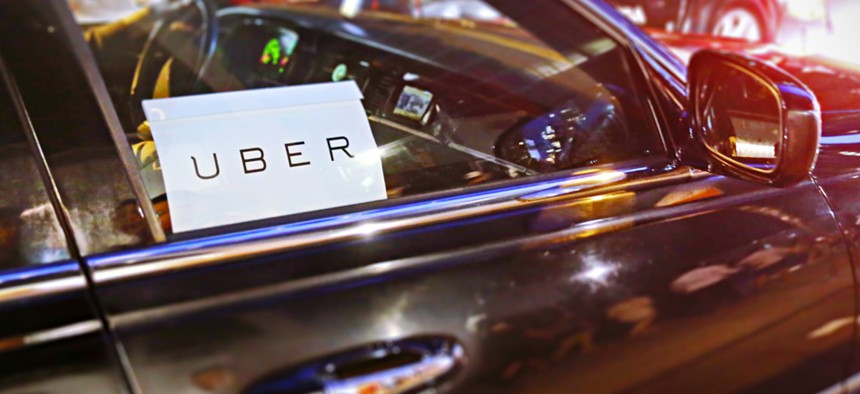Uber Thinks This New Tax Could Be Really Great for Business


Connecting state and local government leaders
Congestion pricing is deeply unpopular with voters but could be a big boon for ride-hailing apps in New York City.
Uber has rarely encouraged local governments to levy taxes on its service. But in New York, the ride-hailing company has finally found a fee it really, really likes.
New York state governor Andrew Cuomo is weighing a new tax on hired rides to fund repairs to the city’s decrepit subway system. The plan, which is expected to be finalized in the state’s budget this week, would charge additional fees on taxi and for-hire car rides taken in Manhattan below 96th street.
The goal is to fund the subway system while reducing vehicle congestion in Manhattan by discouraging people from taking privately hired car rides. Congestion pricing, as it’s known, has long been popular among transit experts and was favored by former New York City mayor Michael Bloomberg. It’s been successfully implemented to untangle streets and reduce emissions by Singapore, London, Milan, and Stockholm.
Congestion pricing is deeply unpopular with voters. Bloomberg’s 2008 push to charge $8 to drivers entering parts of Manhattan during peak hours died in Albany. A Quinnipiac University poll released today (March 29) found that 44 percent of New York City voters oppose using congestion pricing to fund mass transit. It’s also loathed by taxi companies, which fear it will drive more people away from their struggling industry.
But Uber thinks congestion pricing could end up being a boon to business. That’s because Albany is considering a steep discount on fees for shared rides à la UberPool. One version of the proposal, which hasn’t been finalized, would charge passengers an extra $2.50 on taxi trips in Manhattan below 96th street, $2.75 for private rides booked through ride-hailing companies like Uber and with black cars, and $0.75 on shared or “pooled” trips, according to a source familiar with the negotiations.
If finalized, the plan could be the first of its kind to provide a financial incentive for taking shared rides, something Uber and its ride-hailing peers have lobbied for. Uber told Quartz it spent close to $100,000 on a coalition effort to back the congestion plan, and also gave small amounts of money to other groups that agreed to advocate for it. The company has invested considerable resources in UberPool, the shared rides product that former Uber CEO Travis Kalanick once called the “future of human-driven transportation.”
Congestion fees would most likely be added on top of the 8.875 percent state sales tax that for-hire vehicles already collect on each ride, and the $0.50 surcharged required for taxi trips.
In January, a panel convened by Cuomo proposed a phased congestion pricing plan that would begin by imposing a surcharge of $2 to $5 on taxi and for-hire car rides, and eventually extend congestion fees to all vehicles entering the most crowded parts of Manhattan.
The taxi industry, already weakened by ride-hailing, has railed against talk of congestion pricing, saying it would further reduce ridership and threaten drivers’ livelihoods. The New York Taxi Workers Alliance (NYTWA) held a rally on March 28 to protest congestion pricing and honor Nicanor Ochisor, a yellow cab driver who committed suicide on March 16.
“It just seems like Albany is heartless and really clueless as to what’s happening to drivers,” said Bhairavi Desai, executive director of NYTWA. “If the meter were to go up by such a large amount, it would disincentivize passengers from taking taxis.”
Transit startup Via, which mainly offers shared rides, has also bristled at the state’s proposal. Via argues that even discounted fees are too steep on cheap, shared rides, and would end up encouraging people to drive their own cars. “If they’re going to book a private ride, whether it’s an Uber or a Via or a Lyft, totally get it, you want to reduce congestion,” Via CEO Daniel Ramot said. “But they have this option to book a pooled ride. Why are we encouraging them to drive themselves instead?”
Alison Griswold writes for Quartz, where this article was originally published.

NEXT STORY: Pittsburgh's Path Out of Financial Distress




